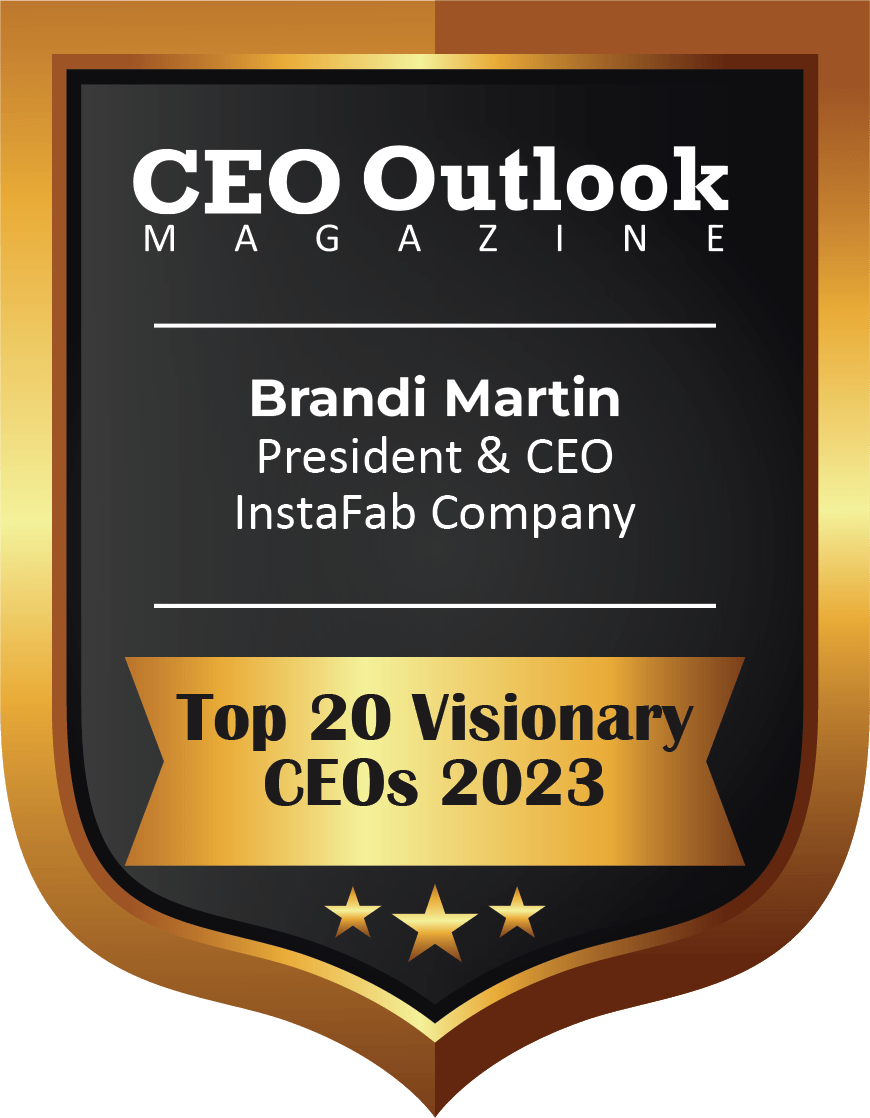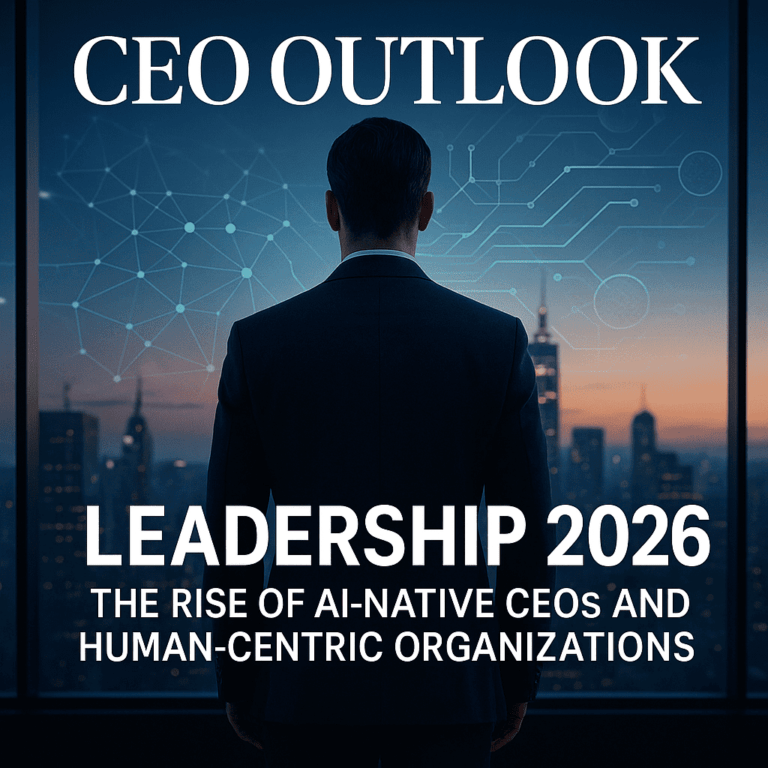Brandi Martin | President & CEO | InstaFab Company

Brandi Martin
President & CEO

" As a learning leader, I believe it’s important to be authentic and vulnerable with your team members. It’s okay to show your emotions and connect with them on a human level. Emotions are what bring people together, and it’s important to model healthy ways of managing them. "
A Dynamic Leader
As a CEO, Brandi Martin believes that prioritization and organizational resilience are vital drivers of success for any company. To effectively manage limited resources and achieve strategic objectives, prioritization is a critical skill that requires constant attention. At the same time, building a culture of continuous learning and adaptability that fosters resilience and helps us bounce back from challenges and failures is essential.
Brandi has focused on transparency, honesty, and constructive problem-solving to build this culture. “We acknowledge our failures and celebrate our wins, and we approach every challenge as an opportunity to learn and improve,” she says. “I recognize that this requires careful leadership to manage the balance between accountability and support and to create an environment that encourages risk-taking and innovation while minimizing the fear of failure.”
In addition to building a resilient culture, Brandi and her team have taken concrete steps to diversify the company’s revenue streams and invest in technology and infrastructure that can help them weather disruptions and emerge stronger. By staying attuned to market trends and customer needs, they are better equipped to anticipate and respond to challenges and find new opportunities for growth and innovation.
Brandi acknowledges that retaining customers during difficult times requires a strong track record of quality customer service and products. It’s also an opportunity to reevaluate a company’s value proposition and ensure its valuable enough to sustain the business in a recession. Labor shortage and retention also hinge on relationships, and a company’s reputation in the community and the relationship management has with the team are critical in maintaining a steady workforce.
The declining skilled labor force is a significant threat in the building trades and manufacturing industries. While technology can help ease the dependency on human capital, INSTAFAB takes pride in being human-centered, so fully automating aligns poorly with its values. Instead, Brandi, the President, and the CEO are working to engage state and federal representatives and local agencies to build a coalition focused on recruitment strategy.
Leaving the Comfort Zone to Lead Others
Brandi knew early on that she had to become comfortable with being uncomfortable. This quality, she says, can make or break a leader because one needs to enhance themselves and learn from their mistakes constantly. “I never opted for discomfort just for fun, but I was driven to serve well, so I consistently leaped at the opportunity for professional development and coaching. I also found it important early on to become a generalist,” explains Brandi. “Initially, this came from my experience in the tech industry when my department was outsourced, and I had to look for other opportunities. I was worried about becoming too specialized and making it difficult to find new jobs.”
But after a while, Brandi’s natural interest in learning a little of everything helped her guide others, make better decisions, know what questions to ask, know when to seek counsel from an expert, and more. It also helped build trust and respect in her teams because she understood what they were going through, as she had been in their shoes. It gave Brandi a better vision and ability to communicate cross-departmentally, significantly when solving complex problems.
Being a woman in tech can be demanding, and balancing work and family life can be challenging. As a mother, wife, and homemaker, Brandi has additional responsibilities at home that she must take care of. That can add to the exhaustion, but having a supportive family can be a blessing in disguise.
Brandi’s advice for managing this balance is to prioritize and schedule time wisely. “I make sure to schedule my work hours and set specific times to leave the office. I also schedule designated family time, self-care, and make myself unavailable during those times. If something urgent comes up, I handle it after dinner or during the time after my family has gone to bed,” she explains. “By prioritizing and scheduling your time, you can ensure that you are meeting your work obligations while also being present for your family. It takes discipline and planning, but it’s worth it to maintain a healthy work-life balance.”
Networking for Business Growth
Networking has been a significant asset in Brandi’s life, leading to new business opportunities, referrals, and word-of-mouth marketing. It has also helped her form trusting relationships with customers. It is also a powerful tool in labor management, where connections can generate many referrals or leads.
“In my own experience, networking has been incredibly impactful in finding brainstorming opportunities and seeking advice when I face challenges that I cannot solve alone. I have found that reaching out to someone in my network to pick their brain has been immensely helpful,” ascribes Brandi. “In addition to providing me with advice and guidance, my network has also helped to bolster my reputation, which is associated with my company. The value of networking cannot be overstated, as it can lead to numerous opportunities, such as securing your next job, generating future business for your company, and developing new employee or contractor relationships. Even the simplest of interactions, such as seeking advice or direction when you are stuck, can profoundly impact your personal and professional growth.”
Brandi is thrilled about the future of INSTAFAB. The company is committed to disrupting the traditional approach to construction and manufacturing by using human-centered design. As an employee-owned company, she is excited to demonstrate the power of employee ownership to the team and the wider community. In addition to her work with INSTAFAB, Brandi has recently taken on a volunteer leadership role with the National Small Business Association’s Leadership Council Advisory Board.
“As a learning leader, I believe it’s important to be authentic and vulnerable with your team members. It’s okay to show your emotions and connect with them on a human level. Emotions are what bring people together, and it’s important to model healthy ways of managing them,” she says. “Creating a safe and inclusive environment is critical for any team’s success. Encourage team members to speak up and share their ideas, and create a culture where mistakes are seen as opportunities to learn and grow.”
Finally, Brandi emphasizes the importance of taking responsibility for one’s actions. “When you make a mistake, own up to it and apologize sincerely. Saying “I’m sorry” can go a long way in building trust and maintaining strong relationships with your team members. Remember, valuing the relationship more than your ego is key to fostering a positive and productive work environment,” concludes Brandi.
























































